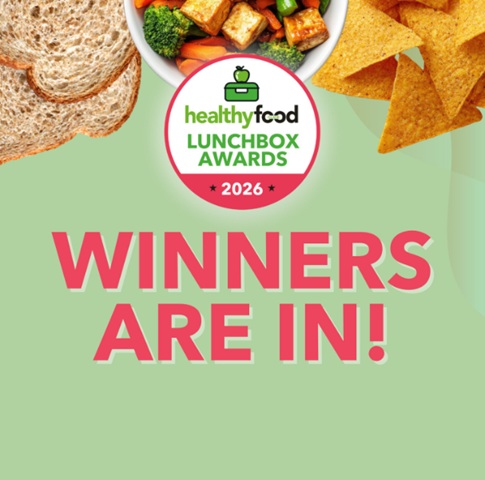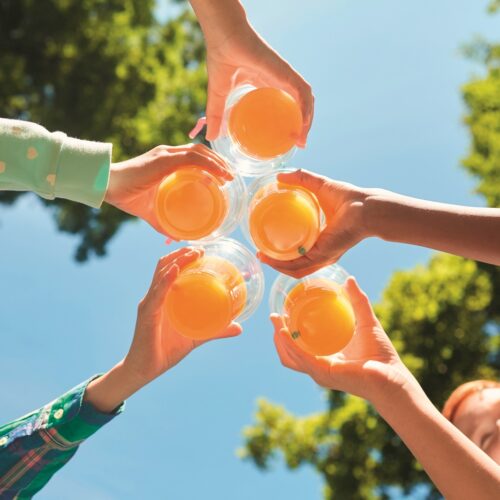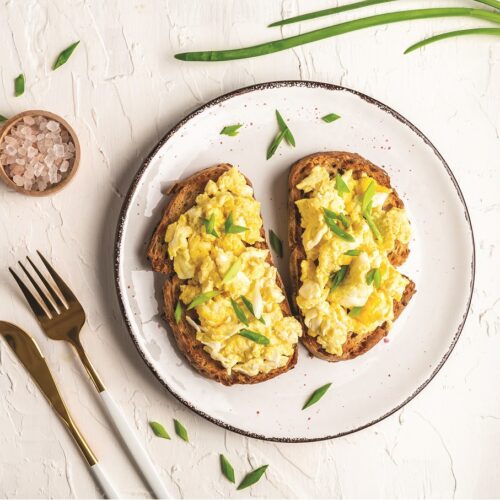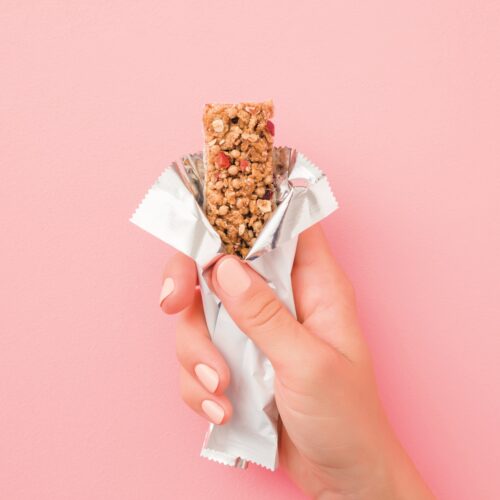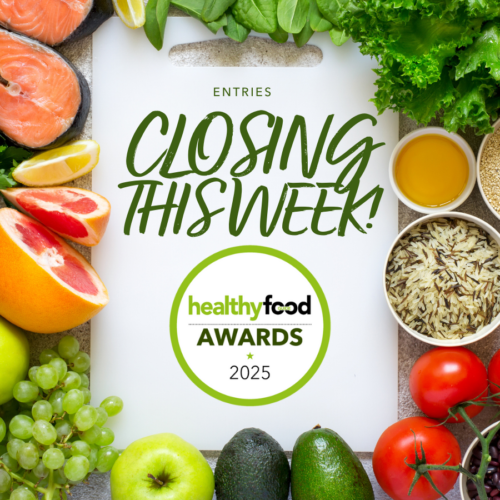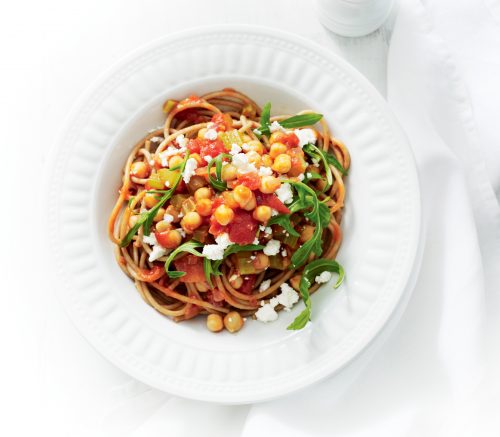
Getting enough protein from your meals and snacks is a great way to feel full for longer and maintain muscle mass. Here’s how to boost your protein through everyday foods.
It’s recommended that between 15—25 per cent of our energy (kilojoule/calorie) intake is from protein.
For an average 8700kJ day that’s between 78—130g of protein. Both protein and fibre add to that feeling of fullness (satiety). So while most of us get an adequate amount of protein in our diets overall, including protein foods in each meal and snack during the day will help us feel full for longer. When we feel full we’re less likely to be tempted by high-kilojoule foods, like cakes and confectionery, that may beckon.
For snacks, a food with around 4g protein or more is a good starting point when we need something sustaining. After resistance training, a carbohydrate and protein snack can help repair and build muscle. But there’s no reason to overdo the protein, as any excess will simply be used as an energy source; try a tablespoon of peanut butter on a slice of grainy bread, which provides 8g protein and 660kJ.
For meat eaters, meat and fish provide high amounts of protein (around 26—36g per 150g), but we don’t need to rely on just animal foods. As we know, a varied diet rich in plant-derived foods is a healthy diet.
Many vegetarian protein sources don’t contain the full range of amino acids (which make up protein) that we need. But that’s easily solved by eating from a range of protein sources over the course of the day, such as legumes, grains, dairy products, tofu, nuts and seeds.
Where to find protein

Recipe idea
Spaghetti with tomato, chickpeas, rocket and feta (pictured at top)
Article sources and references
- Biolo G et al. 1997. An abundant supply of amino acids enhances the metabolic effect of exercise on muscle protein. American Journal of Physiology 273:E122-9https://pubmed.ncbi.nlm.nih.gov/9252488/
- Ministry of Health. 2015. Eating and Activity Guidelines for New Zealand Adults. Wellington: Ministry of Healthhttps://www.health.govt.nz/publication/eating-and-activity-guidelines-new-zealand-adults
www.healthyfood.com



